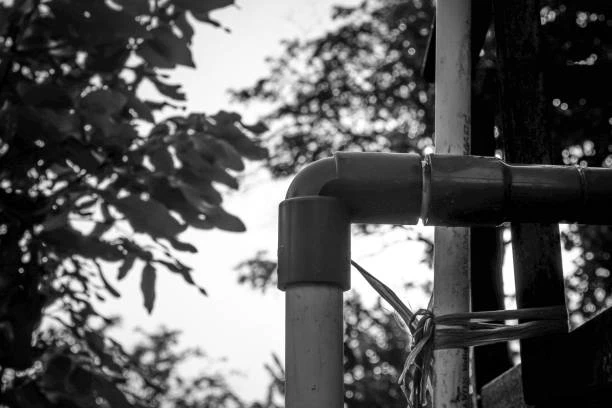PVC plumbing fitting offer several advantages that contribute to their popularity in plumbing systems. Let’s dive deeper into each of these benefits:
1. Affordability
One of the primary reasons why PVC plumbing fitting are favored is their cost-effectiveness. PVC is much less expensive than metal pipes and fittings like copper or steel, making it a practical option for both residential and commercial plumbing systems. This affordability allows homeowners and builders to save money on plumbing installations and repairs.
2. Durability and Longevity
PVC plumbing fitting are known for their long lifespan. Unlike metal fittings, which can rust or corrode over time, PVC is highly resistant to corrosion and rust, ensuring that it will last for many years without deteriorating. This durability makes PVC an ideal choice for plumbing systems in areas with high humidity or exposure to chemicals.
3. Resistance to Corrosion and Chemical Damage
One of the most significant benefits of PVC is its ability to resist chemical damage and corrosion. This resistance is particularly valuable in systems that deal with wastewater, sewage, or industrial chemicals. PVC pipes and fittings can withstand harsh chemicals without deteriorating, making them a reliable choice for various plumbing applications.
4. Lightweight Design
PVC plumbing fitting are incredibly lightweight, making them easy to handle, transport, and install. The lightness of PVC also reduces the overall weight of plumbing systems, which can be particularly beneficial in large-scale installations or systems where weight is a concern.
5. Easy Installation
PVC plumbing fittings are known for their ease of installation. The material is simple to cut, shape, and join, often requiring only basic tools like a saw and a PVC solvent. This ease of installation reduces labor costs, making PVC a great option for DIY enthusiasts and professionals alike.
6. Low Maintenance Requirements
Once installed, PVC plumbing fitting require minimal maintenance. Due to their resistance to corrosion and chemical damage, PVC systems are less prone to leaks and clogs compared to metal systems. Additionally, PVC fitting are easy to clean and maintain, helping to prolong the life of the plumbing system.
7. High Pressure Tolerance
PVC plumbing fittins can withstand high water pressure without cracking or breaking. This makes them suitable for both residential water supply lines and more demanding commercial plumbing systems. The strength of PVC ensures that it remains intact under pressure, reducing the risk of pipe bursts or leaks.
8. Flexibility and Versatility
PVC plumbing fittings are available in a wide variety of shapes and sizes, making them versatile for various plumbing applications. Whether you need a straight pipe, an elbow for a turn, or a T-junction for branching, PVC fittings can be customized to meet your specific needs. This flexibility makes PVC plumbing fitting adaptable to a wide range of plumbing systems.
9. Non-Toxic and Safe for Drinking Water
PVC plumbing fittings are considered safe for use in potable (drinking) water systems when they meet specific safety standards. Unlike some metals, PVC does not leach harmful chemicals into the water, making it a safe choice for residential plumbing. However, it is crucial to ensure that the PVC fittings used are approved for drinking water systems.
Applications of PVC Plumbing Fitting
PVC plumbing fittings are used in a variety of plumbing applications. Below are some of the most common uses:
1. Residential Plumbing Systems
PVC is widely used in residential plumbing for water supply and drainage systems. The cost-effectiveness and ease of installation make it a popular choice for homeowners.
2. Commercial Plumbing Systems
Many commercial plumbing systems also rely on PVC plumbing fitting. The durability and high pressure tolerance make it suitable for larger systems that require reliable performance over time.
3. Wastewater and Sewer Systems
PVC is commonly used for wastewater and sewer plumbing because it resists corrosion from sewage and other waste materials. Its ability to handle chemicals and high pressures makes it a preferred choice for underground piping systems.
4. Irrigation Systems
PVC plumbing fittings are often used in irrigation systems for agricultural and landscaping applications. The fittings are resistant to corrosion from water and fertilizers, making them ideal for outdoor use.

How PVC Plumbing Fittings Compare to Other Materials
While PVC plumbing fittings offer many benefits, it is helpful to compare them to other commonly used materials in the plumbing industry:
PVC vs. Copper
- Advantages of PVC: Cost-effective, lightweight, and resistant to corrosion.
- Disadvantages of PVC: Can become brittle over time, especially in extremely cold temperatures.
- Advantages of Copper: Strong and long-lasting, resistant to high temperatures.
- Disadvantages of Copper: Expensive, prone to corrosion and pitting in certain environments.
PVC vs. Steel
- Advantages of PVC: Easy to install, cost-effective, and chemical resistant.
- Disadvantages of PVC: Can be affected by UV rays, requiring proper protection.
- Advantages of Steel: Strong and durable, resistant to high pressure.
- Disadvantages of Steel: Prone to rust and corrosion, expensive, and difficult to install.
Conclusion
PVC plumbing fittings offer numerous advantages, including affordability, durability, ease of installation, and resistance to corrosion. These benefits make PVC the material of choice for a wide range of plumbing applications, from residential water supply to commercial systems. Despite some concerns over its long-term environmental impact, PVC remains one of the most practical and reliable options for modern plumbing systems.
FAQs
1. Are PVC plumbing fittings safe for drinking water?
Yes, when they meet safety standards, PVC fittings are safe for drinking water systems.
2. How long do PVC plumbing fittings last?
PVC fittings can last for decades, provided they are properly maintained and not exposed to extreme conditions.
3. Can PVC plumbing fittings handle hot water?
PVC is not suitable for hot water systems. CPVC is a better option for handling hot water.
4. Is PVC plumbing more affordable than metal plumbing?
Yes, PVC plumbing fittings are significantly more affordable than copper or steel plumbing options.
5. Can PVC plumbing fittings be recycled?
Yes, PVC is recyclable, though the recycling process may require specialized facilities.